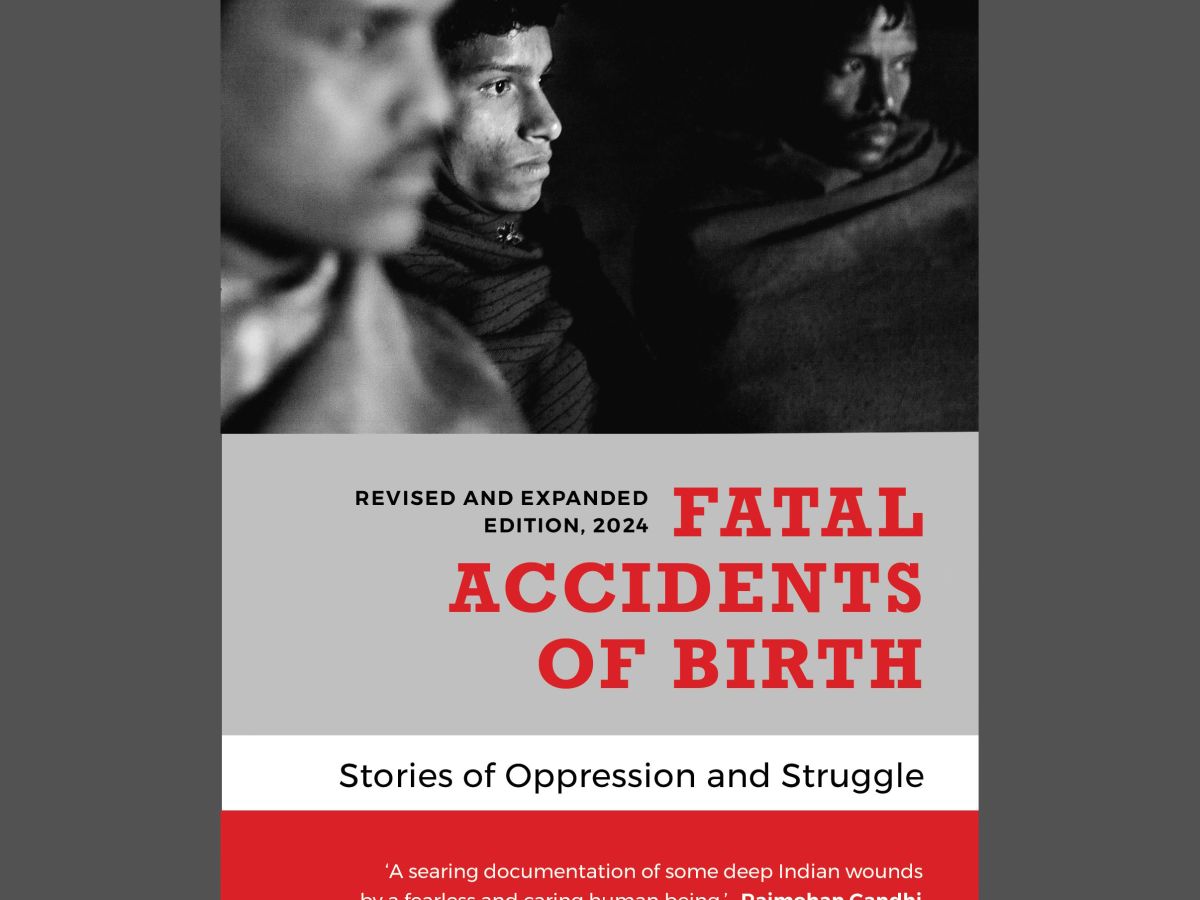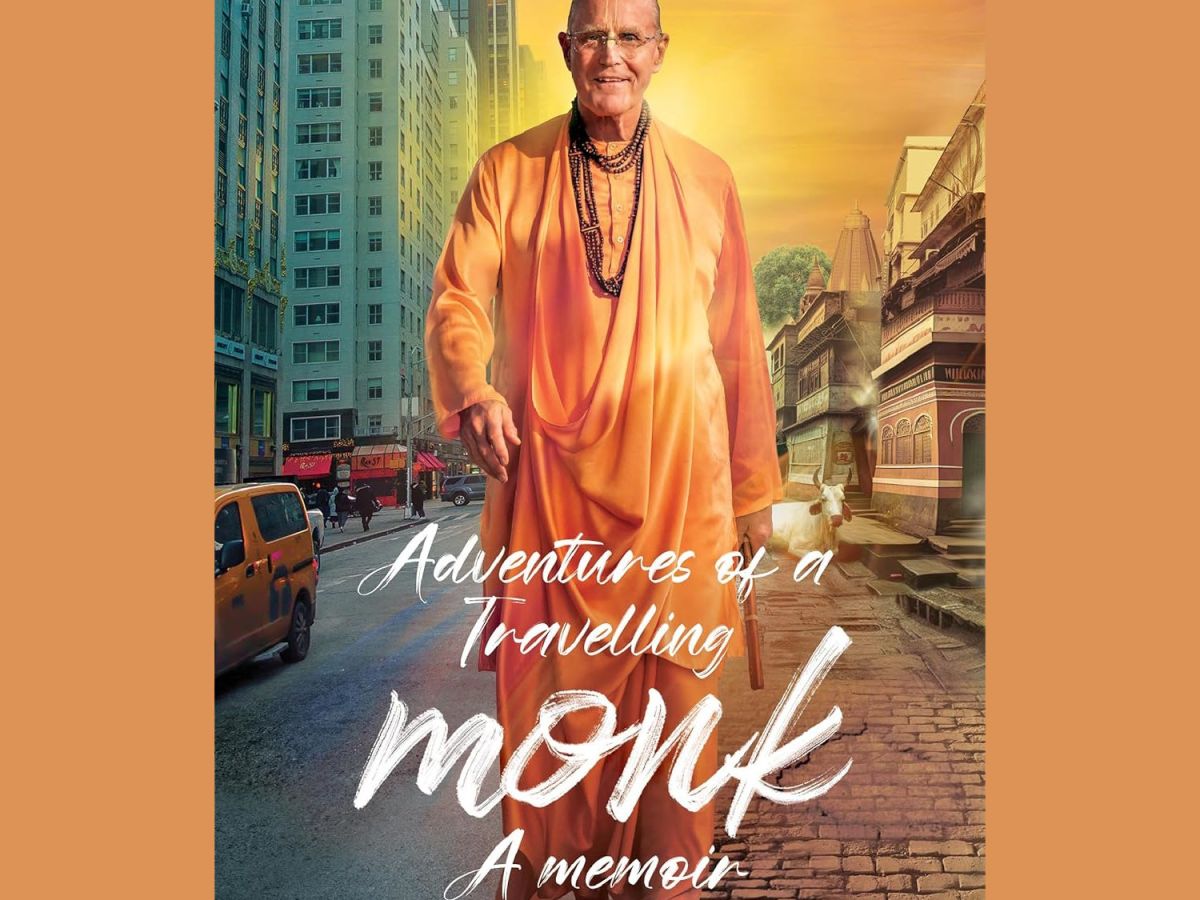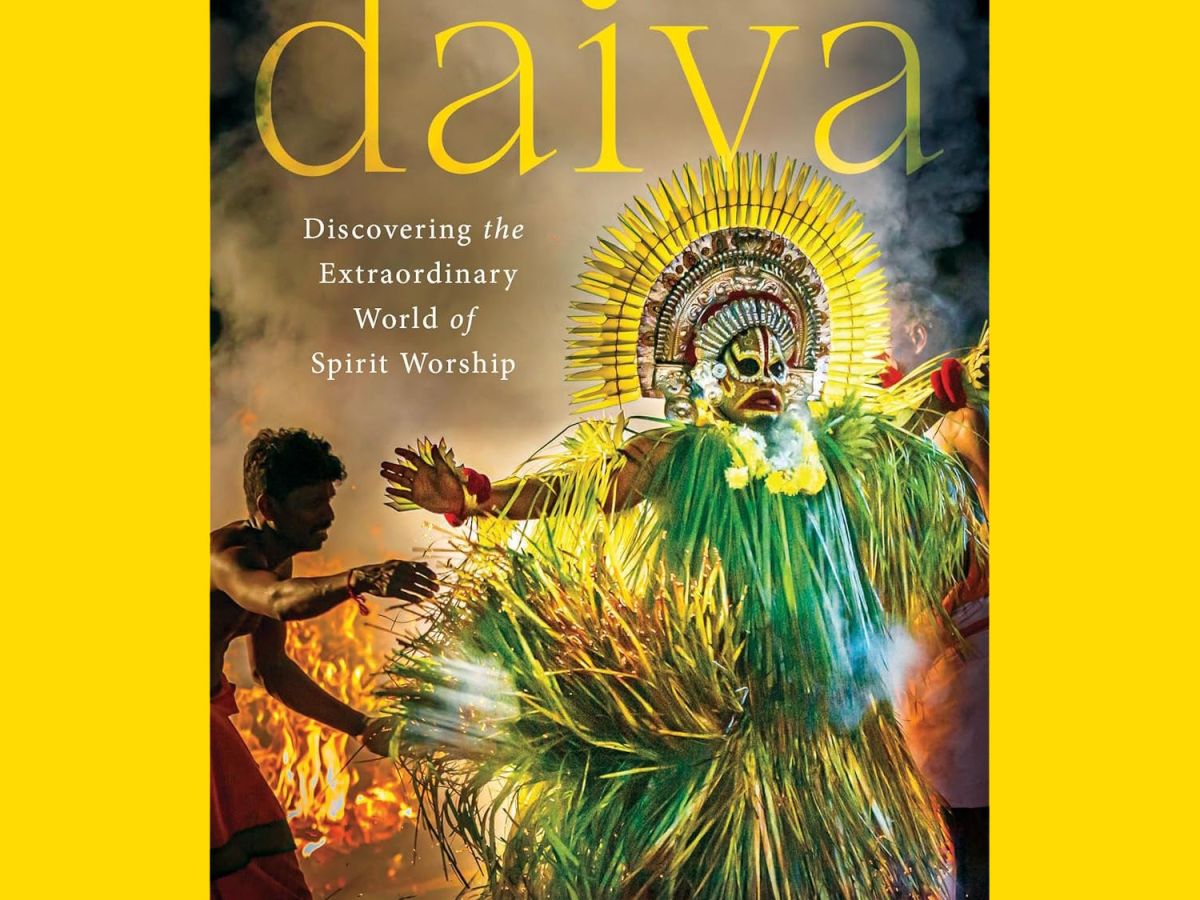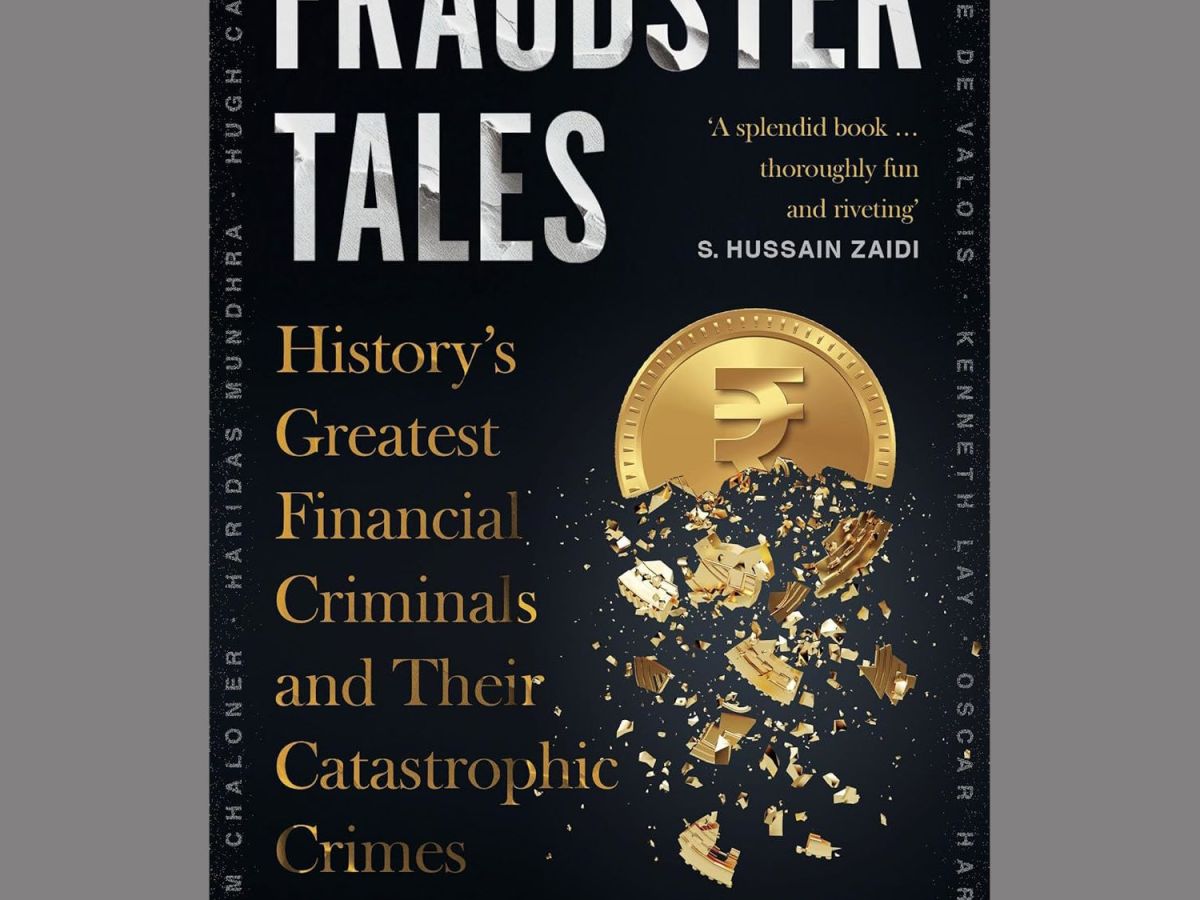We’ll admit, our reading wishlist for March is a bit ‘heavy,’ with Pico Iyer introspecting on a life spent traipsing around the world, Ashoka Mody reflecting on how everything went wrong in India (and how things might be resolved in the future), Dhirendra Jha examining new evidence in the context of Gandhiji’s assassination and Nathuram Godse’s motivations for having committed the heinous act, and Nadeem Khan’s English translation of Savita Ambedkar’s memoir, which was originally written in Marathi. For those who might prefer a ‘lighter’ read, there’s Jerry Pinto’s and Madhulika Liddle’s anthology on Christmas and the ways in which it’s celebrated across India.

Half-Known Life: In Search of Paradise, by Iyer Pico
‘Paradise, that elusive place where the anxieties, struggles, and burdens of life fall away. Most of us dream of it, but each of us has very different ideas about where it is to be found. For some it can be enjoyed only after death; for others, it’s in our midst-or just across the ocean-if only we can find eyes to see it. Traveling from Iran to North Korea, from the Dalai Lama’s Himalayas to the ghostly temples of Japan, Pico Iyer brings together a lifetime of explorations to upend our ideas of utopia and ask how we might find peace in the midst of difficulty and suffering. Does religion lead us back to Eden or only into constant contention? Why do so many seeming paradises turn into war zones? And does paradise exist only in the after-world or can it be found in the here and now? For almost fifty years Iyer has been roaming the world, mixing a global soul’s delight in observing cultures with a pilgrim’s readiness to be transformed. In this culminating work, he brings together the outer world and the inner to offer us a surprising, original, often beautiful exploration of how we might come upon paradise in the midst of our very real lives,’ says the publisher’s note.
‘No stranger to the travel genre, the prolific Iyer is after something more here. In Iyer’s hands, the search for paradise, the way out of the ego, doubles as an internal journey. His chronicle, which begins with an appreciation of the sophistication, beauty and culture of Iran, becomes a requiem for a world – and an existence – estranged from itself,’ says The New York Times. ‘It becomes evident that these are mostly remembered travels, a sifting of a lifetime of journeys that have already marked out a sizeable place on the travel bookshelf for Iyer, that the travels are recalled here in no particular order in time, and that a more interior journey sets the chronology,’ notes The Hindu.

India is Broken: A People Betrayed, 1947 to Today, by Ashoka Mody
‘Through the first half century after independence, India’s leaders could point to uneven but measurable progress. After the mid-1980s, dire poverty declined for a few decades, inspiring declarations of victory. But today, a vast number of Indians struggle in a state of underemployment and are one crisis away from despair. Public goods – education, health, cities, air and water, and the judiciary – are in woeful condition. Policy makers search for easy solutions that further undermine the provision of public goods and job creation. India Is Broken is a history that explains how India landed in this economic catch-22,’ says the publisher’s note. ‘Mody contends that successive post-independence leaders, starting with Jawaharlal Nehru, failed to confront India’s true economic problems. India’s economic growth relied increasingly on unregulated finance and environmentally destructive construction. Social norms and public accountability decayed, allowing for the rise of a violent Hindutva. Hard-hitting, strongly argued, data-driven, and drawing on vignettes from cinema, this book will make for relatable and sombre reading,’ it adds.
‘How plausible is his overall story? Seen in isolation, the economic and political parts of the story may be partially believable. The economic choices during Nehru’s period were fateful and led to a chain of events that continue to affect India till today. Mody’s harshest judgement is reserved for [Narendra] Modi. From allegations of cronyism, to charges of wrecking the economy and squashing of dissent, Modi is blamed for all that ails contemporary India. The reality is, of course, more complicated,’ says Open magazine. ‘Combining statistical data with creative media, such as literature and cinema, to create strong, accessible, people-driven narrative, this book is a meditation on the interplay between democracy and economic progress, with lessons extending far beyond India. Mody proposes a path forward that is fraught with its own peril, but which nevertheless offers something resembling hope,’ says Discovery: Research at Princeton.

Indian Christmas : An Anthology, edited by Jerry Pinto and Madhulika Liddle
‘Few countries celebrate religious and cultural festivals with greater passion, imagination and joy than India. And among the many festivals of this gloriously diverse, multicultural nation is Christmas – the night that Jesus came to earth, bringing with him the all-embracing ‘fragrance of Love.’ The Christian communities of India celebrate the birth of Christ with food, music, lights, prayer, family gatherings, charity and other age-old traditions, some of which have evolved over almost two millennia. And for centuries, other communities have also participated in the celebration of this Indian festival—its cheer and spirit of love as resilient, even in times of division, as India itself. This anthology captures the distinctive magic of Christmas in India. Edited and with introductions by two of India’s finest writers, Jerry Pinto and Madhulika Liddle, it is a splendid collection of essays, images, poems and hymns – both in English and translated from India’s other languages – which showcase the variety of Christmas celebrations across the country,’ says the publisher’s note.
‘Damodar Mauzo, Vivek Menezes, Easterine Kire, Hansda Sowvendra Shekhar, Elizabeth Kuruvilla, Jane Borges and Mary Sushma Kindo, among others, write about Christmas traditions and celebrations in Goa, Nagaland, Kerala, Delhi, Ranchi, Kolkata, Mumbai, Shillong and rural Jharkhand. Arul Cellaturai writes tender poems in the Pillaitamil tradition to the moon about Baby Jesus, and Punjabi singers compose tappe-boliyan about Mary and her infant. There are Mughal miniatures depicting the birth of Jesus, and paintings by Jyoti Sahi and Sister Marie Claire inspired by folk art. And photographers from near and far capture images of Christmas time in Aizawl, Bengaluru, Chennai and Kochi. Charming family traditions, chutnified Christmas lunches and dinners, quintessentially Indian versions of Christmas decorations and rituals – all find a place in the pages of Indian Christmas, a first-of-its-kind collection that pays tribute to a great Indian festival,’ it adds.
‘The anthology takes you from the dimly lit but enchanting nooks and crannies of the northeast to the more familiar stomping grounds of Kerala and Goa. Much of the book consists of reminiscences – with the inevitable undertone of melancholy, as if looking back at a golden age that is lost forever. [The book itself] is like Christmas cake, rich in plums and assorted goodies, with a charming, home-baked air about it,’ says The Week.

Gandhi’s Assassin: The Making of Nathuram Godse and his idea of India, by Dhirendra K. Jha
‘A confirmed bigot and an oddball, the man who became Gandhi’s assassin was something of a miracle baby. Born to Brahmin parents after several stillbirths, Nathuram Godse started off as a child mystic. However, success in everything serious-studies or work-eluded him. The expectations and frustrations that mark the path of young men who cannot cope with the changing tides form the basis of Dhirendra K. Jha’s spectacular study of this disaffected youth. Godse was one of hundreds, and later thousands, of young Indian men to be steered into the sheltering fold of early Hindutva. As disruptions to history evolved new social structures, these men were caught by ideologues, cocooned in a community, and coached and readied for action. Gandhi’s Assassin lays bare Godse’s relationship with the organizations that influenced his world view and gave him a sense of purpose. The book draws out the gradual hardening of Godse’s resolve, and the fateful decisions and intrigue that eventually led to, in the chaotic aftermath of India’s independence in 1947, Mahatma Gandhi’s assassination. On a wintry Delhi evening on 30 January 1948, Godse shot Gandhi at point-blank range, forever silencing the great man. Godse’s journey to this moment of international notoriety from small towns in western India is, by turns, both riveting and wrenching. Drawing from previously unpublished archival material, Jha challenges the sanitization of Gandhi’s assassination, and offers a stunning view on the making of independent India,’ says the publisher’s note.
‘Jha’s book stands out from other books on this theme on few counts. First, it studies Gandhi’s assassination in light of new and hitherto untapped evidence. Second, this book is perhaps one of the first complete biographical accounts of Nathuram Godse in English, attempting to look at and study the issue keeping the assassin at the centre. Third, Jha challenges the existing sources which claim that Godse was not associated with the RSS, by questioning its provenance and genuineness. In a way, Jha’s new research, as incorporated in this amazing book, not only demolishes several of the narratives perpetuated by the RSS over the years with regards to Gandhi’s killing, but even set the record straight, yet again,’ says The Leaflet. ‘Dhirendra Jha’s narration of Godse’s run up to the situation, where he was convinced that nothing will save Hindus and the nation of Hindus, except the killing of Gandhi, is intense and strong. This is a book that not only documents and narrates the events / personalities, but also allows the reader the space to conjecture what would have happened,’ adds Counter Currents.

Babasaheb: My Life With Dr Ambedkar, by Savita Ambedkar (author), Nadeem Khan (translator)
‘Born into a middle-class, Sarasvat Brahmin family, Dr Sharada Kabir met and got to know Dr Bhimrao Ambedkar as a patient riddled with life-threatening diseases, and eventually married him on 15 April 1948, getting rechristened as Savita Ambedkar. From the day of their wedding to the death of Dr Ambedkar on 6 December 1956, she aided him in some of his greatest achievements-drafting the Constitution of India, framing the Hindu Code Bill, writing some of his most celebrated books, including The Buddha and His Dhamma, and leading millions of Dalits into Buddhism. Following his death, she was hounded into obscurity by some of Dr Ambedkar’s followers, who saw her as a threat to their political ambitions. She re-emerged into public life in 1970 and got back to working on the mission to which her husband had devoted his life-the welfare of the Dalit community. Her autobiography, Dr Ambedkaraanchya Sahavaasaat, was first published in Marathi in 1990,’ says the publisher’s note. ‘This English translation by Nadeem Khan unearths a much valuable and forgotten account, an intimate portrait of one of the greatest figures of the twentieth century. A tenacious fighter, an outstanding scholar and an iconic leader, Dr B.R. Ambedkar was all that and more. Savita Ambedkar brings alive a different side of her husband: a man who wrote romantic letters, dictated what she should wear, whipped up delicious mutton curry, played the violin, and even tried his hand at sculpting. This is a book that humanizes Ambedkar as no other book has done yet,’ it adds.
‘My job as a translator here was to retain the conversational, almost confessional tone. In the book, Savita Ambedkar comes across as fearless, naming names, and she defends her position. I was utterly astounded by the aspects of the man revealed by his wife. How could any biographer know these facets? Perhaps, Dr Ambedkar’s one and only friend Naval Bhathena could have written an account from his perspective and it would be a great biography, but only a wife could understand how to fill that hole of loneliness of his childhood, always an outcast,’ said Nadeem Khan (who translated the original Marathi text to English), speaking to Moneycontrol.
adventure advertising Apple astrology audiobooks Banaras best-of lists Bombay book marketing business Calcutta cheap reads cityscapes corporate culture crime design fiction food Hinduism hippies history India Japan journalism journalists libraries literary agents memoirs memories money Mumbai music my life with books Persian photojournalism publishers publishing religion science-fiction self-help technology travel trends Varanasi wishlists
More Stories:
Fatal Accidents of Birth: An Excerpt
In the revised, 2024 edition of Fatal Accidents of Birth, author Harsh Mander presents a harrowing selection of stories of oppression and struggle. ‘This volume collects twenty-one stories of women and men who, simply because they were born poor, or a particular gender, or into a certain caste or religion, fell prey to the many…
Book Review: What Lies Beneath
One of the UK’s most prolific cold-case forensic investigators, Peter Faulding is a forensic expert whose lifework includes things most regular people would happily steer clear of. Things like recovering dead human bodies, finding discarded remains, identifying unmarked graves and saving people from locations and situations that may be too dangerous for normal emergency services.…
Adventures of a Travelling Monk: An Excerpt
Deeply affected by the death of his entire platoon in the Vietnam War, Lance Corporal Brian Tibbitts embarked upon the pursuit of the real meaning and purpose of life and found solace in the Bhagavad Gita. The American ex-Marine met Srila A C Bhaktivedanta Swami, founder of the International Society for Krishna Consciousness (ISKCON) and,…
Daiva – Discovering the Extraordinary World of Spirit Worship: An Excerpt
‘The famous Kola performances of Tulu Nadu involve dancers who invite powerful, sacred spirits to possess them. Through the performers, and surrounded by vibrant colours and striking visuals, these spirits – known as daiva – may settle disputes, provide guidance, grant blessings and pass judgement. However, there is so much more to it than art…
Book Review: Fraudster Tales
‘Crime stories have fascinated audiences all over the world for centuries. But as times have evolved, the spotlight on financial wrongdoing has further intensified. In Fraudster Tales: History’s Greatest Financial Criminals and Their Catastrophic Crimes, seasoned finance professional turned true crime writer Vijay Narayan Govind presents ten remarkable cases that made the world sit up…






